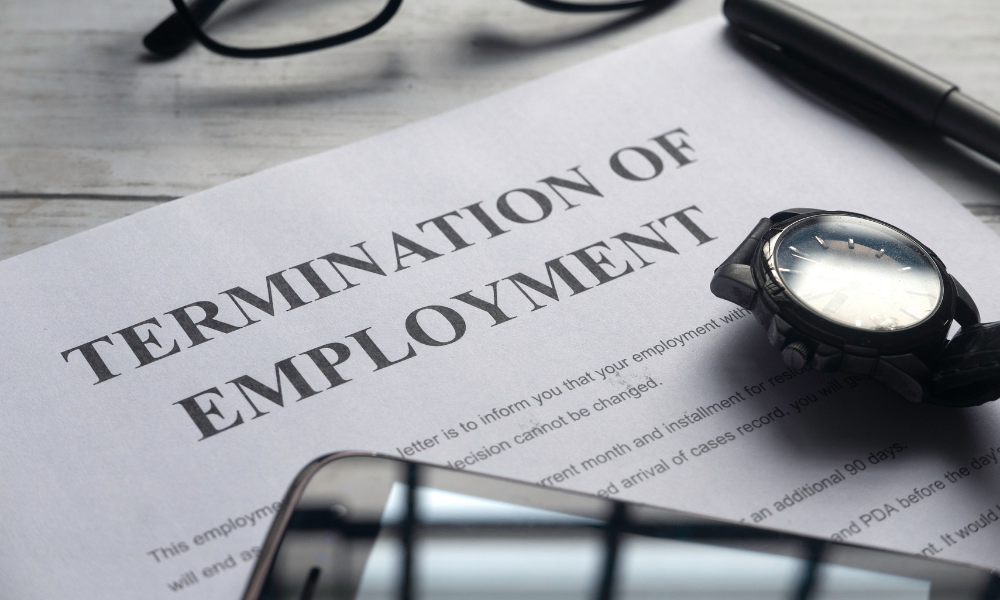
Business sale creates confusion about who's responsible for employment obligations

The Fair Work Commission (FWC) recently dealt with an unfair dismissal claim stemming from a business ownership change.
The worker claimed she was dismissed unfairly when a new owner took over the business where she worked as a manager. She argued that despite the change in business ownership, her employment continued with the new owner, and that she was then dismissed without proper notice just days after the takeover.
The case centered on whether an employment relationship ever existed between the worker and the new business owner.
This question turned on issues about business transfers, secondment agreements, and the legal status of employees during ownership transitions.
Australian Skin Clinics operates as a franchise business providing cosmetic procedures. The franchise outlet at Westfield Knox shopping centre was initially operated by one company before being taken over by a new franchise operator.
The worker was employed from November 2023 as a clinic manager. In early 2025, trading difficulties led the franchisor to approach an existing franchisee to replace the original franchise owner and take over the clinic.
The transaction was structured as a business and asset sale. The contract required the original franchise owner to terminate all employees and settle their entitlements before completing the sale.
The contract stated that the original owner "acknowledges and warrants that, prior to the completion of this business and asset sale transaction, it has terminated all of its employees and has duly paid all statutory entitlements."
On 31 January 2025, the outgoing franchise owner told staff his company no longer operated the franchise. The worker testified he told her: "the business is sold, from tomorrow you have a new owner, and I'm not involved anymore."
On 1 February 2025, the worker attended work according to her regular roster. Representatives of the new franchise owner were present, including an area manager who would oversee multiple clinics.
During that day, staff were offered a "secondment agreement" allowing them to work at the premises under the new owner for up to four weeks while remaining employed by the original franchise owner. The worker signed this agreement after discussing it with the outgoing owner.
The secondment agreement clearly stated: "You will remain an employee of Vendor's company throughout the secondment. The secondment does not create any employment relationship between you and [the new franchise owner]."
On 3 February 2025, the worker received communication that her employment with the original franchise owner had ended and that the secondment agreement would not apply to her. The new owner's solicitor explained this change was required by the outgoing owner's financial advisers during the finalisation of the contract.
The area manager wrote to the worker: "We have now been advised that your Employer terminated your employment as of 31 January 2025. Unfortunately, this means that the secondment arrangement is no longer available."
The worker argued she was employed by the new owner on 1 February 2025, that a transfer of business had occurred, and that she was dismissed effective 3 February 2025.
She pointed to WhatsApp messages and in-person interactions as evidence of an employment relationship. She noted that the new owner's representatives saw her working at the clinic on 1 February and did not ask her to leave, which she believed constituted acceptance of her as an employee.
The worker also referred to a message from the area manager that stated: "[The incoming franchisee] is your new franchisee owner who also owns [another location] as well as will be expanding to more clinics in the near future...We both are really looking forward to working with all of you."
For a transfer of business to occur under section 311 of the Fair Work Act 2009, several requirements must be met, including that the worker's employment with the old employer has ended and within three months, the worker becomes employed by the new employer.
The Commissioner found that while the worker's employment with the original franchise owner may have ended on 31 January, there was insufficient evidence to establish that she became employed by the new owner afterwards.
The Commissioner noted that the worker's argument contradicted the secondment agreement she had signed, which explicitly maintained her employment with the original franchise owner, not the new owner.
"The contention that [the worker] was ever employed by [the employer] is of course contradictory to how [the worker] likely regarded the effect of the signed secondment agreement. In any event the evidence that [the worker] was ever employed by [the employer] is entirely circumstantial," the Commissioner stated.
The Commissioner found no formal evidence of an employment offer from the new owner, explaining: "Unfortunately for [the worker], there is no formal or documentary evidence of [the employer] having offered her employment at any time. There are no statements on the part of [the manager] or [the area manager] that could reasonably be construed as an offer capable of acceptance."
The FWC concluded: "I am not satisfied that the test within s.311(1)(b) for establishment of [the worker] as a transferring employee, namely that 'within 3 months after the termination, the employee becomes employed by the new employer' has been enlivened."
As a result, the FWC dismissed the unfair dismissal application, finding that the worker was never employed by the new franchise owner and consequently had not been dismissed by them.